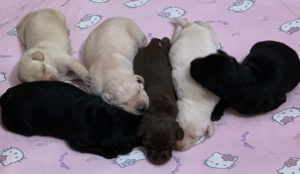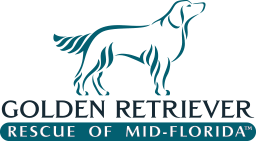Coprophagia is the act of eating and ingesting feces
Studies have shown that what is repulsive to humans is normal and natural in dogs at the earliest stage of their lives.
Mother dogs will lick their puppies to urge them to eliminate, then clean their feces for the first three weeks. Puppies will also engage in this behavior, considered to be part of the process of exploring their world, eating both their own fecal droppings and those of other dogs, and in most cases, this behavior will fade before they’re nine months old.
weeks. Puppies will also engage in this behavior, considered to be part of the process of exploring their world, eating both their own fecal droppings and those of other dogs, and in most cases, this behavior will fade before they’re nine months old.
In adult dogs, however, coprophagia may be the result of an underlying medical condition that can lead to an extreme increase in appetite. The most common medical conditions are parasites, diabetes, inflammatory bowel disease, anemia, vitamin deficiency, malnutrition, thyroid disease and neurological disease.
If your dog is eating his own feces, your vet will have to determine whether it’s medical or behavioral in nature. A full blood profile will be conducted, including a chemical blood profile, a complete blood count, and a urinalysis. If his coprophagia IS the result of an underlying medical condition, it often stops once treatment begins, with follow up visits recommended during the first few months.
In many cases, dogs start to eat their own poop because of some kind of environmental stress or behavioral triggers, including:
Isolation: Studies have shown that dogs who are kept alone in kennels or basements are more likely to eat poop than those dogs who live close to their people.
Restrictive confinement: Spending too much time confined in a small space can cause the problem. It’s not unusual to see coprophagia in dogs rescued from crowded shelters.
Anxiety: often a result of a person using punishment or harsh methods during house training. According to this theory, dogs may eliminate and then eat their own poop to get rid of the evidence, but then they are punished more. It becomes a vicious cycle.
Attention-seeking: Dogs eat their own poop to get a reaction from their humans, which they inevitably will. So if you see your dog doing this, don’t overreact.
Inappropriate association with real food: Dogs who are fed in proximity to their feces may make a connection between the odors of food and those of poop and will be unable to tell the difference.
If it’s the result of a behavioral problem, provide your vet with a thorough history of your dog’s general health, diet, appetite, handling practices, recent activities and environment, and then take steps to remedy the situation.
The simplest way to prevent your dog from eating his feces is
Why Do Dogs Eat Poop?
How to Stop Your Dog From Eating Poop
Veterinarians and dog owners have seen improvements with a handful of strategies, including:
Vitamin supplementation: There’s been a long-standing theory that dogs eat feces because they are missing something in their diets. Vitamin-B deficiency, in particular, has been a prime suspect, and studies have backed this up. In 1981, scientists showed fecal microbial activity synthesized thiamine, a B-vitamin. Other research found other missing nutrients.
Enzyme supplementation: The modern canine diet is higher in carbohydrates and lower in meat-based proteins and fats than the canine ancestral diet. Some people have had success with a meat tenderizer that contains papain, an enzyme.
Taste-aversion products: The theory is that certain tastes and smells are as disgusting to dogs as the idea of stool eating is to us and that spraying certain substances on poop will make it less appealing. Many of these products contain monosodium glutamate, camomile, pepper-plant derivatives, yucca, garlic, and parsley.
Perhaps the best way to stop the problem is through training and environmental management methods, including:
Keep the dog’s living area clean, including the yard, so there will be no poops for him to pick up.
Cat owners should keep that litter box clean or out of the dog’s reach.
Supervise your dog on walks, and pick up after him immediately.
Training. Work hard on the commands “leave it” and “come.” One simple exercise, suggested by Debra Horwitz, DVM, Diplomate ACVB, and Gary Landsberg, DVM, Diplomate ACVB, is to teach your dog to come to you for a food treat as soon as he has eliminated. That way, the dog will develop a habit to run to you for a tasty tidbit, instead of reaching for the revolting recyclable on the ground.
